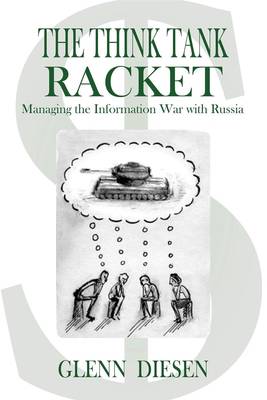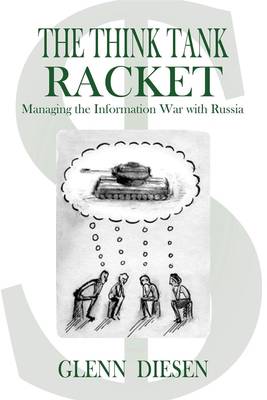
- Retrait gratuit dans votre magasin Club
- 7.000.000 titres dans notre catalogue
- Payer en toute sécurité
- Toujours un magasin près de chez vous
- Retrait gratuit dans votre magasin Club
- 7.000.0000 titres dans notre catalogue
- Payer en toute sécurité
- Toujours un magasin près de chez vous
37,45 €
+ 74 points
Description
How do think tanks influence Western policies toward Russia? The influence of think tanks in Washington has grown immensely over the past decades in terms of producing research papers, engaging with the media, and having their staff enter government.
The ideal purpose and appeal of think tanks is their ability to function as a bridge between academics, the media, the public, and decision-makers. Political decision-makers are expected to be experts across a wide area of governance which becomes increasingly difficult as the world becomes more complex. Acquiring advice and enhancing competencies through cooperation with scholars at universities can be challenging as academics tend to focus on narrow research questions that take place within a wider discussion of theory and method. Think tanks respond to this challenge as institutions that provide focused research studies and policy papers to address specific and current challenges.
The negative aspect of think tanks is the power they wield, from controlling information to functioning as a waiting room for politicians out of office. Information is power, and a think tanks business model has been established that sells political influence in Washington and manufactures consent among the public. The military-industrial complex is the dominant donor to think tanks, which results in a bias toward military solutions and perpetuating conflict.
Russia remains a leading adversary of the West and has sustained Washington's exorbitant military spending over many decades. Think tanks accordingly have a great incentive to push for a confrontational posture towards Russia as they operate in an industry where conflicts are profitable and peace produces losses A mutually acceptable post-Cold War settlement threatened the revenue of one of the largest and most influential industries in the US, which was reversed as a result of NATO expansion and renewed tensions with Russia.
This book explores how the think tanks function, and how their growing role has influenced US policies toward Russia.
The ideal purpose and appeal of think tanks is their ability to function as a bridge between academics, the media, the public, and decision-makers. Political decision-makers are expected to be experts across a wide area of governance which becomes increasingly difficult as the world becomes more complex. Acquiring advice and enhancing competencies through cooperation with scholars at universities can be challenging as academics tend to focus on narrow research questions that take place within a wider discussion of theory and method. Think tanks respond to this challenge as institutions that provide focused research studies and policy papers to address specific and current challenges.
The negative aspect of think tanks is the power they wield, from controlling information to functioning as a waiting room for politicians out of office. Information is power, and a think tanks business model has been established that sells political influence in Washington and manufactures consent among the public. The military-industrial complex is the dominant donor to think tanks, which results in a bias toward military solutions and perpetuating conflict.
Russia remains a leading adversary of the West and has sustained Washington's exorbitant military spending over many decades. Think tanks accordingly have a great incentive to push for a confrontational posture towards Russia as they operate in an industry where conflicts are profitable and peace produces losses A mutually acceptable post-Cold War settlement threatened the revenue of one of the largest and most influential industries in the US, which was reversed as a result of NATO expansion and renewed tensions with Russia.
This book explores how the think tanks function, and how their growing role has influenced US policies toward Russia.
Spécifications
Parties prenantes
- Auteur(s) :
- Editeur:
Contenu
- Nombre de pages :
- 212
- Langue:
- Anglais
Caractéristiques
- EAN:
- 9781949762808
- Date de parution :
- 01-11-23
- Format:
- Livre broché
- Format numérique:
- Trade paperback (VS)
- Dimensions :
- 157 mm x 218 mm
- Poids :
- 385 g

Les avis
Nous publions uniquement les avis qui respectent les conditions requises. Consultez nos conditions pour les avis.






